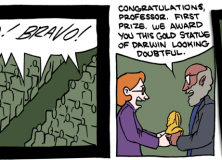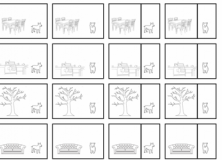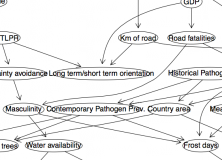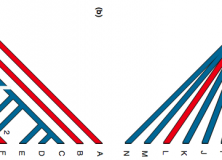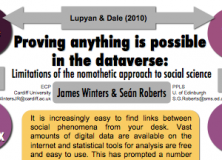Festival of Bad Ad Hoc Hypotheses
Zach Weinersmith of SMBC comics and various science folk are putting on a Festival of Bad Ad Hoc Hypotheses. The festival will include presentations of “well-argued and thoroughly researched but completely incorrect evolutionary theory”. They’re looking for people to give 5 minute presentations. It takes place at MIT on the 20th April, submissions are due … Continue reading “Festival of Bad Ad Hoc Hypotheses”

